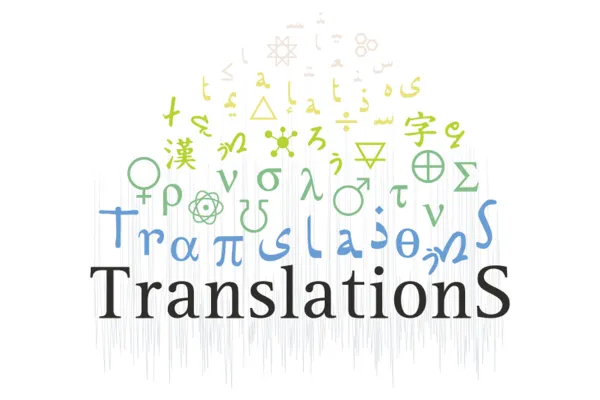TranslationS
Published September 1, 2019
Project Description
As the myth of the Tower of Babel reminds us, translation has always been part of what makes us human. All human communication in one way or another involves translation whether we are aware of it or not. It is that space in which language, culture, history, politics and difference all collide and sometimes cohere to make meaning. Translation at its best both bridges and recognizes difference. At a time of intensive globalization, of increasing and polarized diversity, when cultures and languages seek common understanding, one could argue that translation has become contested even as it is acknowledged as more indispensable than ever. Indeed, most transactions, whether political, commercial, linguistic, diplomatic, social, religious, or literary rely on translation to relay meaning. Yet, the work of translation has often remained hidden or unacknowledged, as if communicating between differences was natural, uncomplicated and therefore transparent. Today, advances in AI, cognitive science and neurology, as well as the successes and failures of machine translation, have brought renewed and urgent attention to the linguistic, literary, philosophical and ethical questions that translation raises. More and more disciplines recognize that translation in some form lies at the heart of their inquiries and methods. This yearlong Kahn project draws attention not only to the traditional practice of translation in the literary field, but also to its role in a wide range of disciplines, as well as to its capacity to animate conversation across disciplines.
Translation means “to carry across.” Translation thus lends itself to both a literal meaning and practice, and a metaphorical resonance. What is it that we carry across from one discipline to another? From one language to another? From one historical epoch to another? From one culture to another? What is left behind in so doing? What are the distinctions among translation, adaptation and interpretation?
In the Anthropocene, can translation facilitate interspecies communication and understanding between humans with atypical language capacities as such the hearing impaired or those on the Autism spectrum? How well do classical Western philosophical concepts—Truth, Being, Soul—translate across cultures? How well do concepts that originate in one discipline translate into another? How does translation intersect with discipline and interdiscplinarity?
How does translation/interpretation intervene in political struggles? Does translation hasten the demise of endangered languages and cultures, or does it help them survive? What is the relation between linguistic injustice and social injustice? What ethical questions arise when translating or interpreting for those displaced or seeking refuge from war and violence? How does translation defamiliarize one’s own language and culture? Our current political climate criticizes academia as being inaccessible to a public citizenry, so how do we translate our work into language suitable for the public sphere?
Translation poses distinct questions for the natural sciences. For instance, is visualization an effective form of translating the plethora of statistical data that we collect? What are its risks, for us as scholars and as teachers? How do vocabularies from more familiar areas of science translate into other, less familiar areas of science? Can models from one sensory domain--vision--be productively translated into models that inform another sensory domain--taste/smell? How can linguistics and language acquisition elucidate the work of translation that operates in language learning and bilingualism? What is the relationship between bilingualism, multilingualism and translation? How does translation negotiate between natural languages and artificial languages? Marquez remarked that the English translation of One Hundred Years of Solitude was better than the Spanish original. What, if anything, transcends--or completely defies--translation? We invite scholars from all divisions and disciplines to join us on a year-long project exploring how translation functions in their work within and across disciplinary borders.
Project Fellows
- Giovanna Bellesia, Italian Studies
- Nalini Bhushan, Philosophy, Organizing Fellow
- David Bickar, Chemistry
- Kendall Futrell '20, Philosophy
- You Jeen Ha '20, Philosophy, Computer Science
- Nick Howe, Computer Science
- Jay Garfield, Philosophy
- Audrey Jiang '20, Neuroscience
- Katherine Kinnaird, Computer Science
- Reyes Lazaro, Spanish & Portuguese
- Kelly Lincoln '20, Comparative Literature
- Cristiano Mazzei, Comparative Literature, University of Massachusetts, Amherst
- Malcolm McNee, Spanish & Portuguese
- Ilse Meiler '20, Chemistry, Russian, Eastern European and Eurasian Studies
- Carolyn Shread, French
- Thalia Pandiri, Classics
- Janie Vanpee, French Studies, Organizing Fellow
- Sujane Wu, East Asian Languages and Literatures
